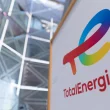Microsoft and RMI have jointly released the ‘Impact Accounting Methodology for Building Construction’, a comprehensive framework aimed at enhancing the accuracy of Scope 3 emissions reporting within the construction sector. This initiative seeks to provide architects, engineers, and procurement teams with actionable methods to guide cost-effective investments and drive significant emissions reductions.
Traditional spend-based accounting methods often penalise companies for investing in lower-carbon materials by inflating reported emissions. The new methodology introduces a dual-path framework that combines process-based data with spend-based calculations and reporting. It leverages verified, product-specific Environmental Product Declarations (EPDs) for high-emitting materials such as steel and concrete, supplemented with spend-based adjustments when detailed emissions data are unavailable.
The methodology identifies two pathways:
- Process-Based Pathway: Utilises detailed, verified EPDs for key high-emission materials like concrete, steel, and insulation.
- Spend-Based Pathway: Applied when detailed EPD data is unavailable, ensuring completeness in Scope 3 emission tracking.
This approach aims to shift the focus towards meaningful emission reduction strategies, facilitating accurate reporting aligned with corporate sustainability goals.
The development of this methodology involved collaboration with Building Transparency, LinkedIn, and the University of Washington, highlighting the collective effort to refine emissions reporting practices. By adopting this hybrid approach, companies can align their spending with climate goals, accurately capture emission reductions, and empower strategic decision-making towards a sustainable future.





















